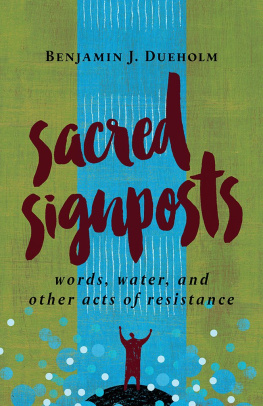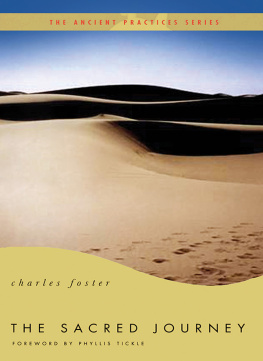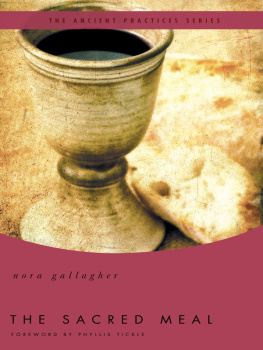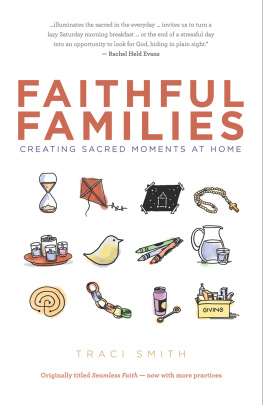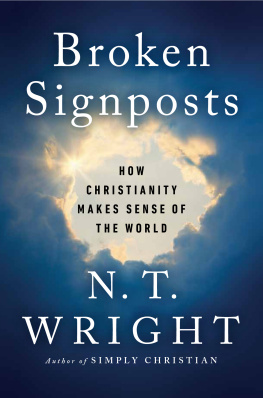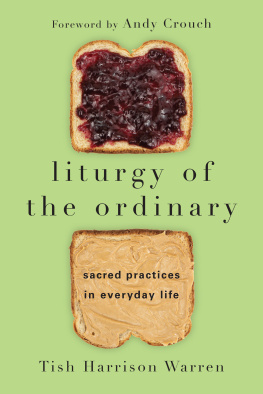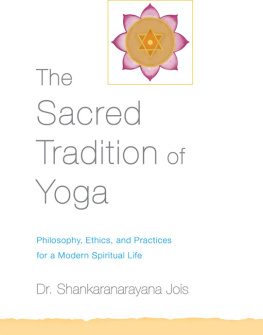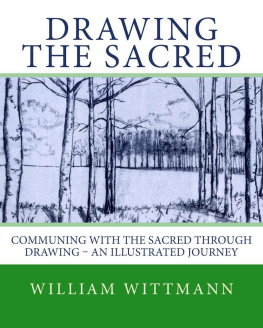SACRED
SIGNPOSTS
Words, Water, and Other Acts of Resistance
Benjamin J. Dueholm
WILLIAM B. EERDMANS PUBLISHING COMPANY
GRAND RAPIDS, MICHIGAN
Wm. B. Eerdmans Publishing Co.
2140 Oak Industrial Drive N.E., Grand Rapids, Michigan 49505
www.eerdmans.com
2018 Benjamin J. Dueholm
All rights reserved
Published 2018
2726252423222120191812345678910
ISBN 978-0-8028-7417-7
eISBN 978-1-4674-5045-4
Library of Congress Cataloging-in-Publication Data
Names: Dueholm, Benjamin J., 1979author.
Title: Sacred signposts : words, water, and other acts of resistance / Benjamin J. Dueholm.
Description: Grand Rapids : Eerdmans Publishing Co., 2018. | Includes bibliographical references.
Identifiers: LCCN 2018001812 | ISBN 9780802874177 (pbk. : alk. paper)
Subjects: LCSH: Christian life. | Spiritual lifeChristianity. | Christian art and symbolism. | Sacraments.
Classification: LCC BV4501.3 .D834 2018 | DDC 230dc23
LC record available at https://lccn.loc.gov/2018001812
Contents
When you write compulsively, the notion of writing a book comes naturally. Everything beyond the notion comes a lot harder. I owe many thanks to Lil Copan for helping me formulate this book and for editing it so vigorously and carefully. Im grateful to the friends who took time to read the chapters and push me to make them better in countless ways: Theodor Dunkelgrn, John Flack, Elizabeth Palmer, Amy Ziettlow, Katy Scrogin, Jason Hines, Daniel Schultz, Erin Bouman, and Bromleigh McCleneghan.
Many different editors helped plant the seeds of this book in dozens of different articles. I am particularly grateful to John Gravois, Steve Thorngate, Ed Lake, Charles Petersen, Kolby Yarnell, Evan Derkacz, Lisa Webster, and Brook Wilensky-Lanford.
The people of many churches received me as a preacher and pastor, helping me to learn almost everything I can claim to know about holding and practicing our faith in a secular world and inspiring me to share it in this way. Thanks in particular to Luther Memorial Church, Wicker Park Lutheran Church, Bethel-Imani Lutheran Church, all in Chicago; to St. Marks Lutheran Church in Aurora; and to the unendingly patient and kind people of Messiah Lutheran Church in Wauconda, Illinois. Thank you to Augustana Lutheran Church and Lutheran Campus Ministry for re-introducing me to Christ at the right time, and to the numerous clergy mentors who guided me, especially Nancy Goede, John Gorder, Susan Swanson, Ray Legania, Linda Packard, Cynthia Lindner, Frank Senn, and the late Ruth VanDemark. And deep thanks to Dawn Mass Eck for being such a supportive and endlessly patient colleague throughout this process.
I am grateful to Mary Hietbrink, Rachel Brewer, and everyone else at Eerdmans who helped make this book first possible, and then better.
Finally, I confess the humblest possible debt to that great academy of theologians who wrote by night after their duties as pastors, bishops, and abbots were attended to and the task of reflection was finally open to them. Their striving to illuminate the faith by which they lived and worked has inspired my own modest attempts to write from the midst of the Christian community. If all my writing accomplishes is to lead readers to Augustine, Luther, Bonhoeffer, and many others not directly quoted here, I will count it a success.
And on the day called Sunday, all who live in cities or in the country gather together to one place, and the memoirs of the apostles or the writings of the prophets are read, as long as time permits; then, when the reader has ceased, the president verbally instructs, and exhorts to the imitation of these good things.
JUSTIN MARTYR,
FIRST APOLOGY, CHAPTER 67
The Economy of Giving a Damn
Life is an endless war of all against all for our attention. Each moment, each choice, each thing we encounter poses us a question: Do I matter? We use our words and conversations, assembling them into great discourses and worldviews, to answer that question. From the earliest Greek philosophers to Googles search algorithm, weve been trying to decide how to ration our scarce attention and concern. We list our priorities. We decide if something is important in itself or for some other purpose. We create an economy of giving a damn.
And into that economy of giving a damn, the first holy possession introduces serious instability. Every day, in almost every language, Christians open up this first holy possession, the Word
That Word, like all other conversations and discourses, is about deciding what matters. It shows forth a world created by God and continually mended and redeemed by God. It confronts those who hear it with infinite demands and infinite possibilities. It challenges their values and scrutinizes their choices. Most importantly, it upends their assumptions about whose existence matters and requires attention and respect.
Some Christian societies have testified to the holiness and the danger of this Word by prohibiting it in various forms. Owning the Scriptures in translation was, once, a political crime. An antebellum politician in South Carolina, arguing successfully to prohibit teaching slaves to read and write, insisted that anyone who wanted slaves to read the whole Bible belonged in the Lunatic Asylum. The powerful, wishing to be free to use the poor and lowly, did not want those poor and lowly to hear that God had not made them to be used. And those poor and lowly, when they heard those words, kept and treasured them, and resisted oppression by them.
It is hard to imagine everything mattering as much as the Word tells us it does. It is much easier to ration significance, to focus on the big picture. As a preacher, I am aware of techniques we use to blunt the confrontation, to impose some stability on the economy of care and concern that is threatened by the Word.
The Word becomes an item for sale in a skeptical market.
The Word acts on those who hear it. It leaves an impression of what we would otherwise forget or discard. It guides and directs us to possibilities, both dreadful and hopeful, that we might otherwise have no way to see. And to do this, it does not require our faith, but only our curiosity. It does not require conviction, but openness to other ways of seeing and thinking.
But this possession, like all those that follow, doesnt sit on the shelf awaiting a buyer. The Word acts on those who hear it. It leaves an impression of what we would otherwise forget or discard. It guides and directs us to possibilities, both dreadful and hopeful, that we might otherwise have no way to see. And to do this, it does not require our faith, but only our curiosity. It does not require conviction, but openness to other ways of seeing and thinking. It marks out the frontier of a very different economy of concern than we would otherwise know, and invites us to enter.
Do I Matter? A Case Study
On a day-off ramble not long ago, my son Elijah and I found a newborn mouse stranded on a white-painted stripe in the church parking lot. It was tiny, eyes still covered and unable to walk. It hurled itself vigorously one way and another, far from any hospitable place. One of the neighborhood hawks must have let it slip.
A miserable, orphaned creature, once seen, cannot be unseen. Its fate instantly implicated us. Im not tender-hearted toward mice. In California, where they carry Hantavirus, I killed them without pity by water trap and boot heel. Nonetheless, there is solidarity in mammalhood. If we watch a fellow creature strive blindly toward a mother it will never find, we should not be unmoved.

